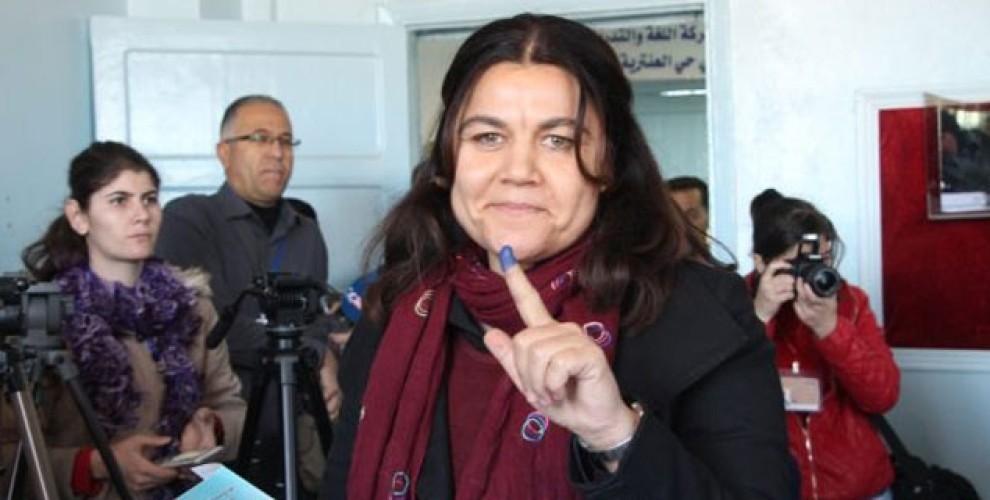Foza Yusif: “Elections sent a strong message”
Northern Syrian Federation Executive Council Co-chair Foza Yusif stated that the local elections being completed successfully with good participation sent a good message to friend and foe alike.
Northern Syrian Federation Executive Council Co-chair Foza Yusif stated that the local elections being completed successfully with good participation sent a good message to friend and foe alike.

Northern Syrian Federation Executive Council Co-chair Foza Yusif stated that the local elections being completed successfully with good participation sent a good message to friend and foe alike. She stressed that the peoples have ratified the federation and have shown that they have the solution.
Northern Syrian Federation Executive Council Co-chair Foza Yusif spoke to Yeni Özgür Politika about the local elections held on December 1.
More than 800.000 voting slips were distributed. What is the number of voters, and how was the participation with regards to the total population? What does the participation rate tell you?
These elections were held during the Riyadh and Geneva meetings. Holding elections at such a time was a message. It showed that the peoples of Northern Syria and Syria in general have the right to resolve their issues through their own strength and dynamics. These elections put forth a way to a solution and offered a perspective not just for Northern Syria but for Syria as a whole.
Interest from the people was great, even though ballots were set up in central locations unlike the commune elections because this was local elections, and the war was still ongoing. 69% is an important level of participation. Voters didn’t just vote for the council members, the peoples who are living together showed that they are approving the Democratic Federalism System and they see it as the way to solve problems. This was an important aspect of these elections.
For the first time in the history of Syria and the Middle East, peoples agreed among themselves, set up quotas and formed assemblies and organized in the most democratic way to govern themselves.
Can you talk about the process after that (determining the 40% quota, forming the administrations after the assemblies are completed) and the calendar?
The Social Contract states that the elections will have 60% general and 40% quotas. This quota is set up so different peoples, the youth and different faith groups can be represented. The Elections Act was prepared so all social groups can be represented. According to the outcome of the elections, 50% of all assemblies is made up of women. There is also a youth quota in all assemblies and young people will be serving in the councils. The third quota was an agreed upon quota for the representation of all peoples in the region, so they are in the councils now as well.
How was the participation by peoples other than Kurds in the sense of voters and candidates? What does that mean for the future of Northern Syria?
There was great participation from peoples of Northern Syria other than the Kurds. Especially in regions where Arabs live, there was very strong participation. This is very important for the success of the project we have set out. All peoples and social groups participating in these elections shows that the Democratic Nation perspective has been accepted by all peoples and social groups. Peoples want to live together in a free and equal basis. That was also a very strong message to both local and international political powers. A strong participation shows that the project will prevail. These elections will have a great contribution to the desire of the peoples to live together in peace.
How do you explain the stance of KDP-led political groups who have been acting together with Turkey since the beginning? Was the post-referendum fiasco reflected on them as well?
These groups related to the Turkish state boycotted the Commune elections. They wanted to do the same in these last elections. During the Commune elections, the referendum in Southern Kurdistan hadn’t been completed yet, and the outcome wasn’t clear, but groups under the ENKS still went to the ballots in high numbers and voted. The ENKS has very little influence over even the groups closes to them. Everybody can see that this project is a national project and is implemented so the rights of all Kurds can be guaranteed. Groups that are close to the ENKS politically participated in both the Commune and the local elections. There will be greater participation from both Kurds and other groups in the region in the third phase of the elections.